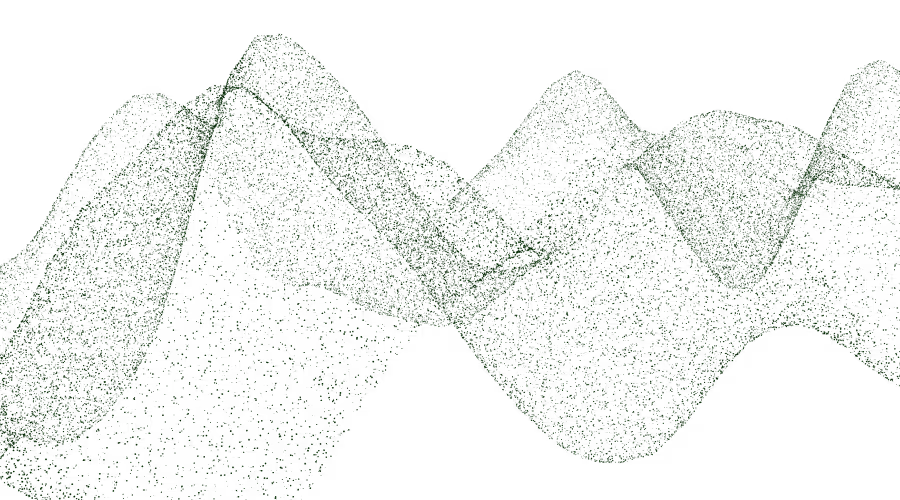Seeding Trust in Regen Ag: Where We Stand & What’s Needed

Soil degradation is occurring over a quarter of Earth’s ice-free land area and is costing trillions annually. It leads to increased emissions from soils as well as lower rates of soil carbon sequestration, creating a combination that is both contributing to and exacerbated by climate change.
Regenerative Agriculture (Regen Ag) is looking to slow down and reverse these processes by focusing on four key practices: reducing soil disturbance, increasing plant diversity, maintaining living roots, and keeping soil covered.
Market potential
The carbon sequestration potential is vast—global cropland soils alone have the capacity to sequester upwards of 6 billion tonnes of CO2 annually, more than 30x current carbon credit retirements across all major registries combined. And, while there is plenty of activity in the space—you can find 1,000+ agriculture projects in Sylvera’s Project Catalog—the market so far has been lacking a definitive quality signal to help scale the project type to its full potential.
Therefore, Sylvera is launching Regen Ag (Croplands) Ratings, with a number of them already available to all Sylvera customers on our platform. The need couldn’t be clearer—Sylvera’s initial screenings have highlighted a full spectrum of risk across projects, while the credits’ prices are estimated to spread north of 20x. Therefore, pairing quality indicators with the price is critical to building a high quality portfolio
See the Ratings firsthand - request a demo here
In an improving yet still dislocated market, opportunities and pitfalls are aplenty. Here are a few useful takeaways from our Ratings so far:
Takeaways for buyers
- Regen Ag projects typically utilize robust approaches to soil carbon modeling. However, inherent challenges associated with soil carbon sequestration, combined with the early stages of many projects, contribute to uncertainty about carbon sequestration claims.
- Additionality can be complex due to the extensive non-VCM incentives for regenerative agriculture.
- Permanence risks are inherent to the soil organic carbon storage portion of issuance. Drivers such as fluctuations in agricultural commodity prices may lead farmers to revert to previous management practices or changes in land ownership. On the other hand, non-reversible emissions reductions, which make up a smaller portion of the issuance and are derived from reduced fossil fuel combustion, are inherently permanent.
- Data disclosure in this space is often lacking, making robust developer engagement crucial (see more on this point below).
What are we doing to improve trust in this field?
As with all Sylvera’s assessments, we’ve followed a rigorous and robust process including peer review and an external Framework Review Committee. This Ratings framework has been developed by a 10+ strong team of in-house and external domain experts with expertise and academic credentials spanning Biogeochemistry and Soil Science to Computational Mathematics.
The team counts dozens of academic publications and 100+ years of relevant professional and academic experience with multiple PhDs, PostDocs and includes expert consultant Edward Brzostek. The framework development work also involved Sylvera’s Field Data Science and Machine Learning (ML) teams.
We will now be developing a separate Ratings framework for grasslands, primarily addressing livestock production in grazing systems.
Reap what you sow: engaging developers is key
Buyers’ trust is vital in the growth of this market. Our unique developer engagement program directly benefits buyers by ensuring that the projects they invest in are of known integrity.
Upon initiating a Rating, we first engage with the developer to gather the most up-to-date project boundary information and address initial queries. We then request further details, such as financial models and evidence of project activities, allowing our Assessments Team to analyze all developer and public data. If the developer collaborates in good faith, we share the rating and allow feedback before it is published. Post-publication, developers may provide additional data, and we respond promptly to questions, aiming to resolve grievances within 30 days.
Take a step forward with Regen Ag
Explore the vital role Regen Ag can play in enhancing your carbon credit strategy, in a market that is facing issues with quality supply and proof of value. You can request a demo and experience firsthand:
- The breadth of projects in the VCM (over 10,000, with more than 1,000 in agriculture)
- Delve into Sylvera's Regen Ag Ratings
- Connect with over 200 market participants to secure credit volumes at the lowest prices
Understand Regen Ag Ratings and the state of the market
We pride ourselves on leading the industry with robust frameworks, integrity and high quality data and insights. Check our framework to:
- Understand our approach. See how we assess projects, including scoring pillars, so you understand the criteria behind our Ratings and how they can inform your investments.
- See the state of Regen Ag. Get a picture of some of the challenges and opportunities in the market, and the need for improved data transparency to boost trust and accuracy in credit valuations.
- Get guidance on interpreting scores. For each of the scoring pillars, and what each level represents in terms of project quality, risk, and confidence.
Download our Regenerative Agriculture (Croplands) Framework

The end-to end carbon dataplatform for the 'net' in yournet zero goals














